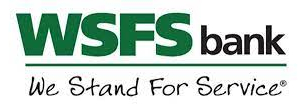WSFS Bank Offers Tips for How Small Businesses Can Better Manage Their Expenses

Small business owners face a number of challenges, the most daunting of which is often expense management. Making accurate and informed financial decisions is critical to the success of any business, but more so for small businesses poised for growth.
It is imperative for small business owners to learn effective methods for tracking expenses. A trio of WSFS Bank executives — Jeremy Shackleford, Director of Small Business Sales; Steven J. Cunningham, Director of SBA Sales; and Shelly Kavanagh, Director of Retail Delivery — have tips for how small business owners can effectively manage expenses and ensure their financial stability.
1. Sharpening Your Expense Management
“Having a deep understanding of the risks to your business’ continuity and profitability can help you avoid some common pitfalls that result from poor expense management,” said Shackleford. “A strong expense management plan starts with four key areas of focus that when implemented effectively can help keep your small business financially healthy and thriving.”
- Budgeting: Create and adhere to a budget. By monitoring expenditures closely, businesses can allocate resources more efficiently, prevent overspending, and ensure funds are available for essential operations and growth initiatives. Audit your expenses on a monthly, quarterly and annual basis to help shape even more efficient budgets.
- Cost Savings: Identify areas where cost-saving measures can be implemented. Analyzing spending patterns and trimming unnecessary expenses can lead to significant savings over time, contributing to improved profitability.
- Healthcare: Ensure healthcare costs are controlled and optimized through appropriate insurance plans, negotiation with healthcare providers, and wellness programs. This helps in providing essential benefits while managing costs.
- Supply Chain: Optimize procurement, inventory, and distribution costs. By streamlining these processes and negotiating favorable terms with suppliers, small businesses can maintain healthy profit margins while ensuring product availability.
2. Recognizing Investments Disguised as Expenses
“There are expenses that are critical to a small business’ success that are investments that should not be ignored,” said Shackleford.
Here are some key investment expenses for small businesses:
- Marketing and Advertising: Develop a solid marketing plan and budget to drive revenue. “You can break down marketing costs into buckets, like advertising, social media and public relations, to set your own ROI benchmarks and test and learn to see what is most effective for your business,” said Shackleford.
- Real Estate: Owning property can build equity and provide cost certainty.
- Employees: Investing in quality benefits and training can attract and retain crucial talent. “Having productive, happy employees can go a long way toward establishing and maintaining business continuity,” said Shackleford. “Investing in quality benefits packages, training and even setting up voluntary retirement plans can not only help you attract talent for your small business, but to also retain employees you identify as crucial to your business’ success.”
3. Strategic Tax Planning
Effective tax strategies can strengthen your business:
- Business Structure: Consider restructuring (e.g., LLC) for legal protections and tax benefits. “If your business has experienced changes, especially positive growth, over the past couple years, it may be time to consider changing its tax structure to protect your business from personal liabilities,” said Cunningham. “For example, if your small business is set up as a sole proprietorship and has grown or expanded over the past year, and you are still the sole owner, it may make sense to separate your personal and business finances and responsibilities more by structuring your business as a Single-Member Limited Liability Company, or LLC.”
- Equipment Investment: Utilize IRS Section 179 for equipment deductions. “The IRS’ Section 179 tax code allows small businesses to deduct equipment purchases in certain categories up to $1,160,000 when it is acquired and put in use in 2023,” said Cunningham. “You can deduct 80 percent of the purchase price before paying off any financing, allowing you to get the needed equipment and start using it for the benefit of your business now.”
- Real Estate Ownership: Deduct interest on business real estate loans and build equity. “By owning the space where your business operates, you can build equity while also starting to deduct annual interest paid on a small business real estate loan, which helps roll cash back into your business by generating revenue though renting extra space to tenants,” said Cunningham. “Just make sure your business uses at least 51 percent of the space.”
4. Leveraging Money Markets
“Balancing cash needs with investing in the business can be a challenge, but there are ways for small businesses to do both simultaneously with a money market account,” said Kavanagh.
Money market accounts offer:
- Easy Access to Cash: Secure, liquid assets with higher interest rates than traditional savings. “The cash you have in your money market when you don’t need it will continue to earn interest and provide a higher return on your investments, especially during high interest rate environments like we are currently experiencing,” said Kavanagh.
- FDIC Insurance: Reduced risk with FDIC-insured accounts.
- Flexibility: More flexibility compared to CDs, allowing for growth in savings while earning interest.
WSFS Bank’s commitment to the financial health of small businesses has positioned it as a pivotal partner for clients as they navigate the complexities of expense management. Learn more about how WSFS Bank is helping small businesses weave a stronger financial future.
Connect With Your Community
Subscribe for stories that matter!
"*" indicates required fields






























